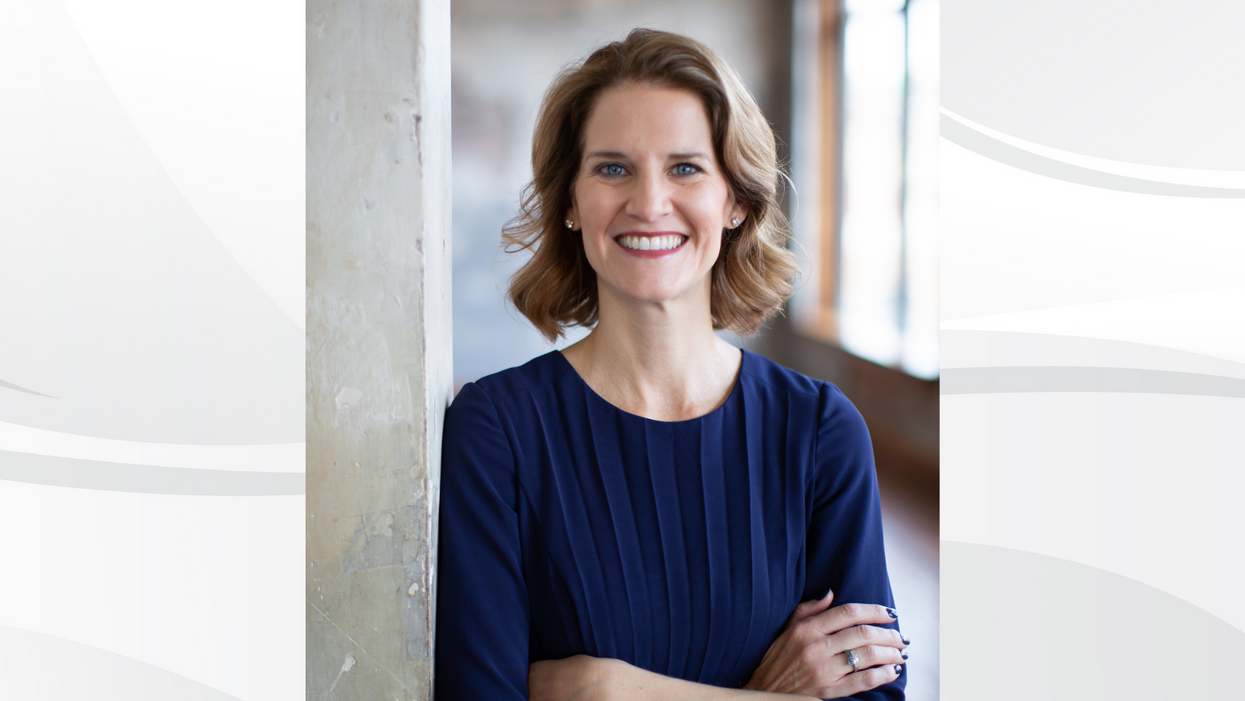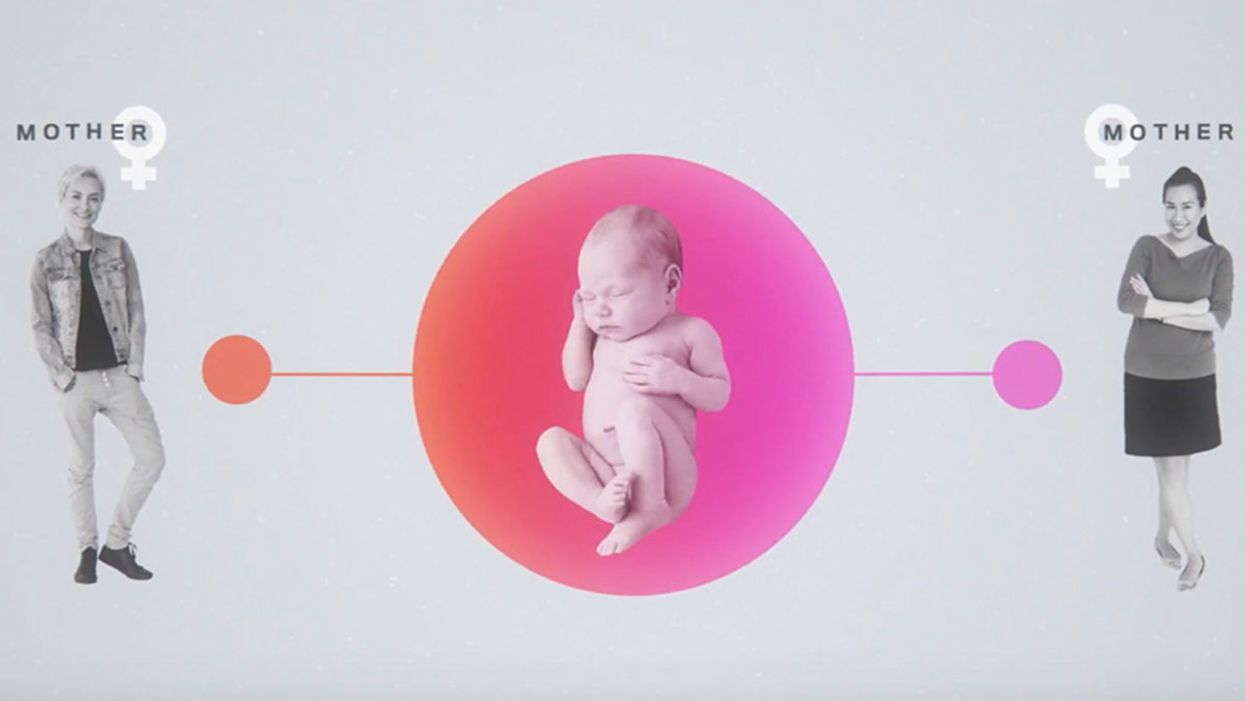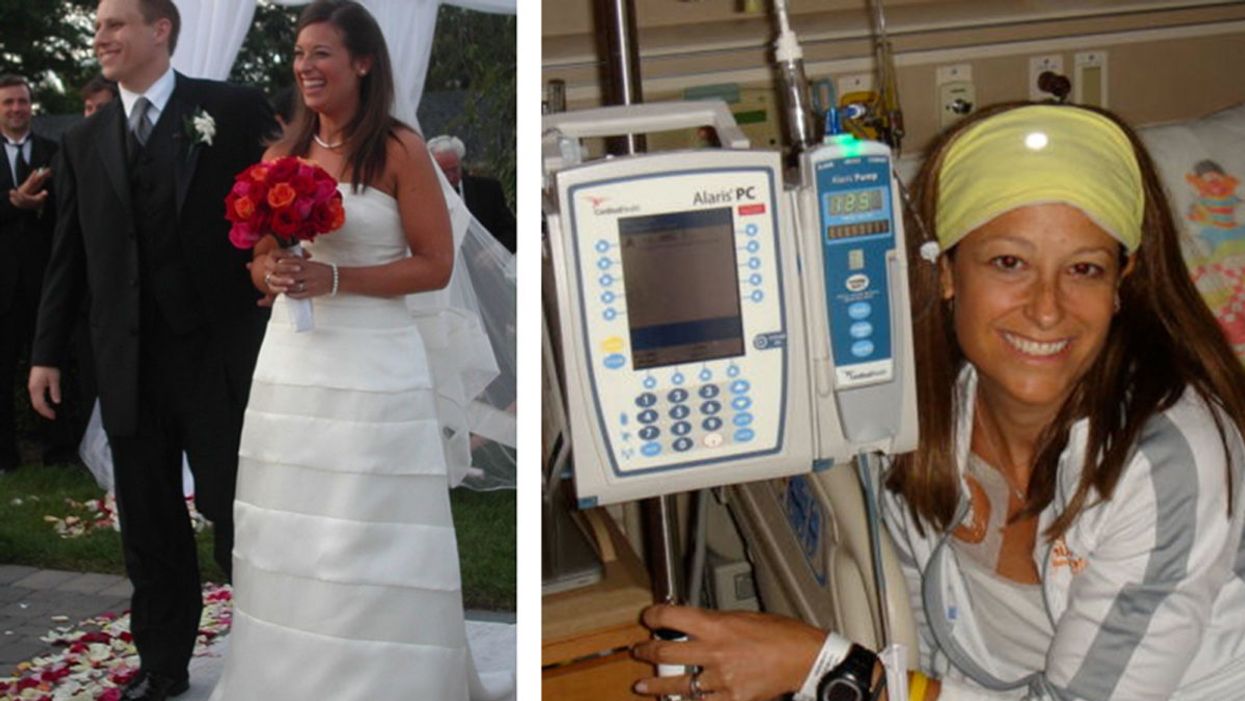New Podcast: Dr. Natasha Burgert Discusses Kids and the Delta Variant

"Making Sense of Science" is a monthly podcast that features interviews with leading medical and scientific experts about the latest developments and the big ethical and societal questions they raise. This episode is hosted by science and biotech journalist Emily Mullin, summer editor of the award-winning science outlet Leaps.org.
Listen to the episode:
An emerging technology called in vitro gametogenesis would allow babies to be made from skin cells.
[Ed. Note: This is the third episode in our Moonshot series, which will explore four cutting-edge scientific developments that stand to fundamentally transform our world.]
Kira Peikoff was the editor-in-chief of Leaps.org from 2017 to 2021. As a journalist, her work has appeared in The New York Times, Newsweek, Nautilus, Popular Mechanics, The New York Academy of Sciences, and other outlets. She is also the author of four suspense novels that explore controversial issues arising from scientific innovation: Living Proof, No Time to Die, Die Again Tomorrow, and Mother Knows Best. Peikoff holds a B.A. in Journalism from New York University and an M.S. in Bioethics from Columbia University. She lives in New Jersey with her husband and two young sons. Follow her on Twitter @KiraPeikoff.
My Wife's Fight Against Cancer Inspired 38,000 People to Raise Millions for Research
David and Jen on their wedding day, and Jen undergoing treatment for her rare sarcoma.
It was 15 years ago this month, but I'll never forget those words. When my wife Jen and I asked her oncologist about our plans to start a family, he calmly replied, "Well, I wouldn't do so unless Dave is prepared to be a single father."
About 50 percent of all people with cancer have a rare type, like the one Jen was fighting.
Time stood still. The danger crystalized — we were in a battle for my beautiful bride's life, and the odds were not in our favor.
We felt every emotion expected. Anger, sadness, confusion, frustration, and especially fear. But we made a very intentional choice to take that fear, put it to the side, and do everything we could to live our lives together to the fullest.
We focused first on Jen's health and learned everything we could about MFH Sarcoma. I was with her every step of the way — for hundreds of medical appointments, six intense surgeries, and twenty different types of chemotherapy. During such a challenging time, our choice to reject fear allowed us to live our best lives. Our careers blossomed, we enjoyed several international vacations, and Jen inspired thousands of fellow patients through her blog and speeches.
When we researched treatment options we learned that Jen was not alone. About 50 percent of all people with cancer have a rare type, like the one Jen was fighting. However, rare cancers don't get the funding they desperately need so effective treatment options are hard to find. The lack of funding felt unfair — and urgent. We didn't worry about everything that can go wrong when starting a new venture. Instead, we jumped in head first and convinced a small group of friends and family to ride stationary bikes with us to raise money for rare cancer research.

Jen Goodman Linn, riding a stationary bike for Cycle for Survival.
(Courtesy David Linn)
From those humble beginnings, Cycle for Survival grew steadily. After starting from scratch, Jen and I ran Cycle for Survival on our own for two years. We quickly realized that if we wanted to help as many people as possible, we needed the best partners. In 2009, we agreed that Memorial Sloan Kettering Cancer Center would take over the ownership of Cycle for Survival and Equinox officially became the Founding Partner. Flash forward to today, and Cycle for Survival has raised more than $220 million! I'm proud that 100% of every donation, yes every penny, goes directly into life-saving rare cancer research within six months of the annual indoor cycling events, which now take place in 17 cities nationwide.
While Cycle for Survival's trajectory was heading straight up, Jen's health struggle was devastatingly swinging up and down. With her incredible spirit and tenacity, Jen would beat the cancer through chemo and surgery, but then it would frustratingly come back again and again. After going into remission six times, it returned with such a vengeance in 2011 that even the world's leading doctors were forced to say, "I'm sorry, there's nothing more we can do."
Those were the most difficult words I've ever heard, by far. I hope no other family has to hear these crushing words.
When Jen died soon after, I didn't know what would happen to me, to my life, and to Cycle for Survival. I do remember making two very important choices at the time. First, I chose to get out of bed and put one foot in front of the other. It wasn't easy. Tears, pain, and grief would hit at any hour of the day or night. I did have a great support network of family and friends who kept me moving forward. One friend in particular changed the route of her morning runs so that I would join her and start getting back to exercising.
My second key choice was to stay involved with Cycle for Survival. At times, it was an excruciatingly difficult decision because I felt the depth of my loss each and every time I stepped into one of the events. However, it was also rewarding and energizing because I could see firsthand how many people it was helping, even though it was too late for Jen.
I began to travel across the country with the Cycle for Survival staff. My hope was to spread the word about rare cancers; along the way I met a lot of wonderful people who shared their stories with me. What I soon realized is that each of us faces obstacles in our lives. For me, it was losing the person who I wanted to spend my life with. For others, it might be challenges with their kids or in their professional lives. The common theme is that we don't have control over the fact that we have to face these challenges. But the biggest lesson I've learned is that we very much do have a choice in how we react.
I made the choice to do everything I can to help rare cancer patients and their families and it has been transformative and healing for me. The small group who rode in the first Cycle for Survival event has grown into a powerful movement of nearly 40,000 riders making a real difference. If Jen were diagnosed today, there are new treatments available– including genomic sequencing, targeted therapies, and immunotherapies – that could help her. Those weren't even options a short time ago. That's the result of funding research.

A recent Cycle for Survival event shows the passion and power of the community.
(Courtesy David Linn)
I also want to share one more choice I made. Remember that friend who changed the route of her morning runs so I could start exercising after Jen died? Well, over the years friendship grew into love, and we're now building a home together and can't wait to see what the future holds for us.
So with all that in mind I ask – when you face those inevitable challenges in your life, how will you choose to react? Remember that even in the midst of hopelessness, you can find choices. Those will be the decisions that define and guide you.

